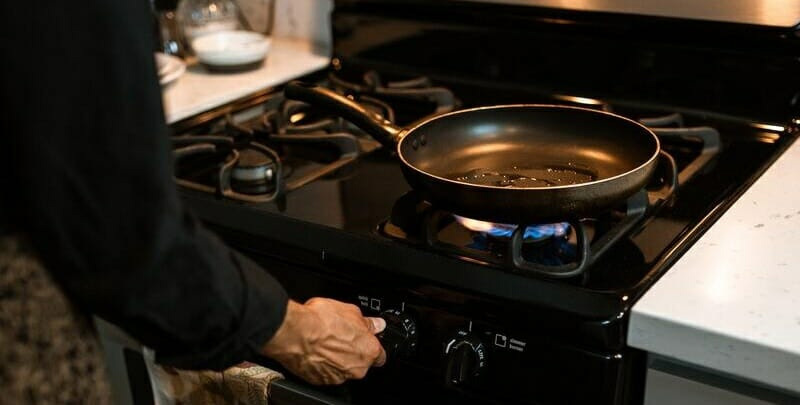Are you getting a whiff of a smell similar to rotten eggs around your home lately? If so, it’s time to take action because you might be dealing with a gas leak.
Natural gas leaks can pose serious hazards including respiratory problems, carbon monoxide poisoning, or even death when left unattended.
In this post, we will guide you on how to check for a gas leak in your home, highlighting vital steps to take if you suspect one.
Is a Gas Leak an Emergency?
Yes, absolutely! A gas leak is an emergency as it poses a risk to both life and property. It can cause carbon monoxide poisoning, which can be fatal. It also dramatically increases the risk of fire or explosion. Therefore, treat any suspected gas leak as an emergency – better to be safe than sorry.
What are the Symptoms of a Gas Leak?
You need to be familiar with the signs of a gas leak. That funny smell that’s akin to rotten eggs is one. But there’s more to it than that.
- Rotten egg smell: Natural gas normally doesn’t have a smell. Gas companies add an odour so that gas leaks can be detected easily. This odour often smells like rotten eggs.
- Hissing or whistling sound: If there’s a significant leak, you might hear a hissing or whistling sound near your gas lines or gas appliances.
- Unstable operation: A key symptom of a gas leak can be that the pilot lights on your gas appliances frequently go out, indicating that the gas supply may not be stable or safe.
- Dead or discoloured plants: If plants around your home suddenly die or become discoloured, this could be an indication of a gas leak.
- Increased gas bills: An unexpected increase in your gas bills could also point to a leak.
- Physical symptoms: Long-term exposure to gas leaks may cause symptoms similar to flu – headaches, dizziness, nausea, and tiredness.
What to Do If You Suspect a Gas Leak
While professional help is the ultimate solution to a gas leak, it can still take a while before they respond. And especially during emergencies like a suspected gas leak, time is of the essence. Here’s what you can do in the event of a suspected gas leak:
- Don’t panic!: Just because you smell gas doesn’t mean there is a major gas leak in all the gas appliances. It could be minor, but it still needs attending to.
- Do not ignite anything: This is crucial. Do not light matches or keep naked flames in the area. Also, avoid using electrical appliances as they can create sparks and cause an explosion.
- Create ventilation: Open all the windows and doors to dissipate the gas.
- Get everyone out: Remove everyone from the area immediately, ensuring their safety. Escape routes should be clear of any potential sources of ignition.
- Turn off the gas supply: If you feel it’s safe to do so, turn off the gas at the gas meter (or gas metre). This should cut off the gas supply to the whole house.
- Call for help: Once you’re in a safe location away from the smell of gas, call emergency services or your local gas distributor.

Who to Call If You Smell Gas Leak
In an emergency, call your local gas distributor. Gas companies have emergency hotlines for such situations. Alternatively, you can also contact emergency services (000), who can come in, assess the situation, and take the necessary actions.
The Importance of Hiring a Licensed Gas Fitter
Gas appliances need to be maintained and checked by a licensed gas fitter. You should also have yearly inspections scheduled to avoid any leaks in the future. Gas lines, pipe work, and appliances should be inspected for proper operation and potential gas leaks.
If a gas leak occurs, a certified inspector or licensed professional should handle the matter to ensure the safety and efficiency of your gas supply.
Role of the Australian Gas Association and Gas Companies
The Australian Gas Association (AGA) and local gas distributors play a significant role in ensuring gas safety in homes. They regulate and guide gas companies to maintain high standards of safety for their customers.
Smell Gas, Act Fast
The key takeaway? Never take a gas leak lightly. Regular checks ensure your loved ones’ safety and avoiding substantial costs from unchecked gas leaks.
If in doubt, it’s always best to call in the professionals. Do not attempt to tackle a gas leak yourself. Remember, keeping everyone safe should always be your priority. Let’s adhere to natural gas safety guidelines and keep our homes safe from potential gas leaks.
Please note: This information is provided for advice purposes only. Regulations differ from state to state, so please consult your local authorities or an industry professional before proceeding with any work. See our Terms & Conditions here.

